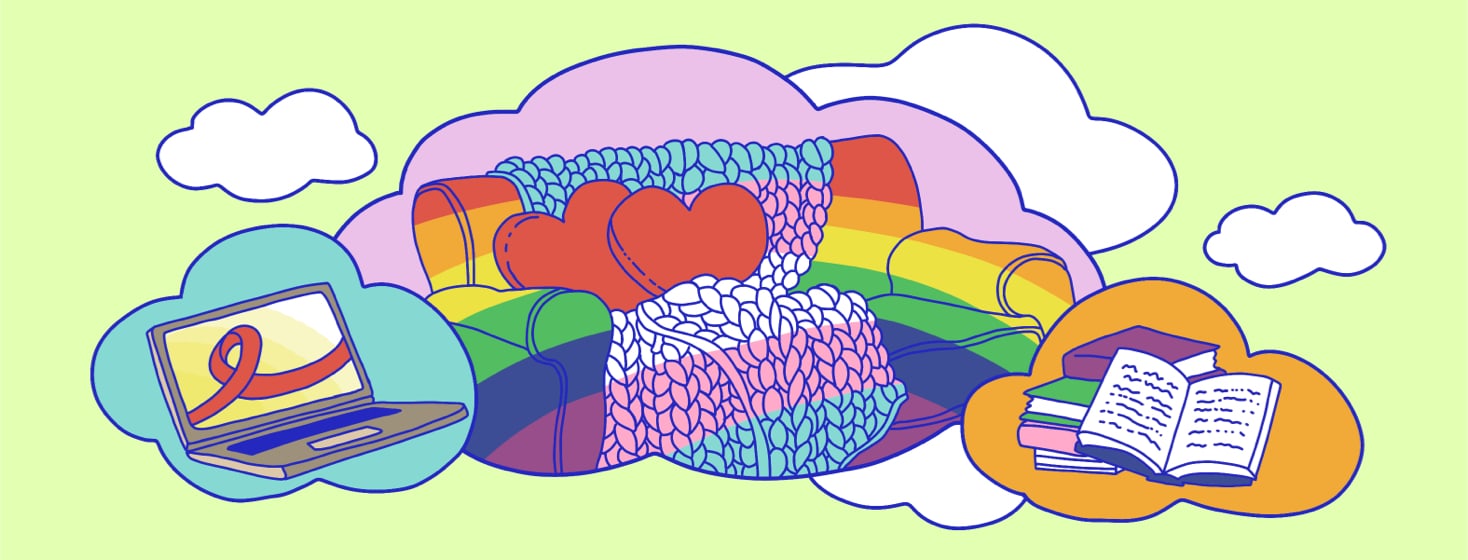Safe and Supportive Spaces
We currently live in a world where safe and supportive LGBTQ+ spaces are hard to find. In my personal experience, I have seen many people in my community associate these types of safe spaces with things like bars and clubs.
I do feel that bars and clubs can, at times, be considered a safe environment for community, but also feel like there can be so much more. Growing up as a gay man was hard for me because the only place that I knew I could go to get to know people was at venues where alcohol was always involved. I feel all public health organizations should utilize some type of safe space environment for their community.
In my professional work I was able to create a safe, supportive, and inviting environment for those in the LGBTQ+ community within South Los Angeles. These types of safe spaces are what can help community members connect with one another in a variety of different ways. The safe space can look very different from one organization to the next.
Start a Forum
The safe space we created
Our safe space is a huge room which has 6 small couches, each one in a different color of the rainbow. We even just recently got an additional couch which represents the Trans colors. There is also a bookshelf full of books that have been donated, and a few clothing racks full of new or slightly used clothes.
I have seen so many community members come in to utilize these types of services. It is always great to take a walk into the safe space and see youth hanging out or using the space to read a book. We continue to promote the safe space to the community, which sheds more light on all the services we provide.
Once the local community knows about the amazing work we do, they also want to help and get involved by supplying donations. We get donations throughout the year which can include blankets, hygiene kits, toys, shoes, and clothing for all individuals.
The safe space should be both fun and inviting, but also used for professional development. We provide several computers in the room for the community to access the internet to do things like job searches, homework, or resume development. I have also been able to assist individuals from the community whenever they needed help with any of these things.
All are welcome
Our target population we are trying to reach would be LGBTQ+ youth, but we open our space to anyone who can benefit from our services. We also use the space for different types of activities throughout the week. Each week there is a game night and some type of social support group. These social support groups are geared towards youth and those living with HIV.
Once a month, the room is also used to hold a book club and an open mic night. I am very fortunate to work at a site that has this amazing safe space for the community.
Creating a safe space
I can acknowledge that not all organizations can offer this, but there can be other ways to create a safe space. I am a very strong believer that any space can be transformed into a safe space. If you can provide time for someone from the community to come into your office to have a conversation and be open with you, that can be exactly the safe space they needed.
Safe and supportive spaces are important for marginalized communities who are often disproportionately affected by HIV because there are not many places where you can have open and honest conversations regarding your sexual health. When I first was diagnosed, I did not have a space to go and talk about my diagnosis. After a few months of searching, I finally found a safe space where I was able to volunteer and meet others who were on my same journey.
This safe space opened up my eyes and gave me the confidence that I needed to live positively and out about my diagnosis. Once I built up that confidence I went back to school, graduated, and worked my way up within the field of HIV prevention and education.

Join the conversation